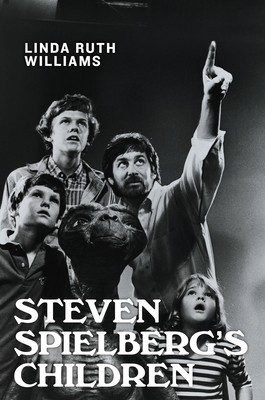
- We will send in 10–14 business days.
- Author: Linda Ruth Williams
- Publisher: Rutgers University Press
- ISBN-10: 0813571677
- ISBN-13: 9780813571676
- Format: 15.5 x 23.4 x 2 cm, minkšti viršeliai
- Language: English
- SAVE -10% with code: EXTRA
Reviews
Description
Why has Steven Spielberg's work been so often identified with childhood and children? How does the director elicit such complex performances from his young actors? Steven Spielberg's Children is the first book to investigate children, childhood, and Spielberg's employment of child actors together and in depth. Through a series of lively readings of both the celebrated performances he elicits from his young stars in films such as E.T.: The Extra Terrestrial, A.I.: Artificial Intelligence and Empire of the Sun, as well as less discussed roles in films such as War of the Worlds, The BFG, and Jurassic Park, this book shows children to be key players in the director's articulation of childhood since the 1970s.
Steven Spielberg's Children presents children and childhood in some surprising ways, not only analyzing boyhood and girlhood according to Spielberg, but considering children as alien, adult-children who refuse to grow up, and children who aren't even human. It discusses the way in which children have served to cast Spielberg as a sentimentalist, but also how they are more frequently framed as complex, cruel and canny. The child might be dangled as bait in an exploitation horror scenario (Jaws), might become the image of universal higher beings (Close Encounters of the Third Kind), or might be a young cultural creator like the director was himself (The Fabelmans), 'born with a camera glued to [his] eye'. The child, on both sides of the camera, is a resonant image, signifying all that adult culture wants it to be, yet resisting this through authorship of their own stories. The book also looks at his young actors in the long history of child stars in theatre and cinema, and how Spielberg's children have fared as performers and celebrities.EXTRA 10 % discount with code: EXTRA
The promotion ends in 22d.17:02:14
The discount code is valid when purchasing from 10 €. Discounts do not stack.
- Author: Linda Ruth Williams
- Publisher: Rutgers University Press
- ISBN-10: 0813571677
- ISBN-13: 9780813571676
- Format: 15.5 x 23.4 x 2 cm, minkšti viršeliai
- Language: English English
Why has Steven Spielberg's work been so often identified with childhood and children? How does the director elicit such complex performances from his young actors? Steven Spielberg's Children is the first book to investigate children, childhood, and Spielberg's employment of child actors together and in depth. Through a series of lively readings of both the celebrated performances he elicits from his young stars in films such as E.T.: The Extra Terrestrial, A.I.: Artificial Intelligence and Empire of the Sun, as well as less discussed roles in films such as War of the Worlds, The BFG, and Jurassic Park, this book shows children to be key players in the director's articulation of childhood since the 1970s.
Steven Spielberg's Children presents children and childhood in some surprising ways, not only analyzing boyhood and girlhood according to Spielberg, but considering children as alien, adult-children who refuse to grow up, and children who aren't even human. It discusses the way in which children have served to cast Spielberg as a sentimentalist, but also how they are more frequently framed as complex, cruel and canny. The child might be dangled as bait in an exploitation horror scenario (Jaws), might become the image of universal higher beings (Close Encounters of the Third Kind), or might be a young cultural creator like the director was himself (The Fabelmans), 'born with a camera glued to [his] eye'. The child, on both sides of the camera, is a resonant image, signifying all that adult culture wants it to be, yet resisting this through authorship of their own stories. The book also looks at his young actors in the long history of child stars in theatre and cinema, and how Spielberg's children have fared as performers and celebrities.

Reviews